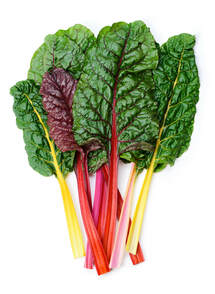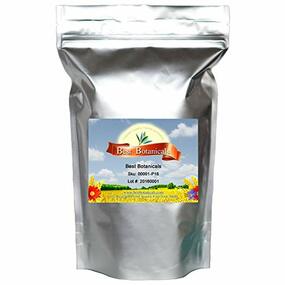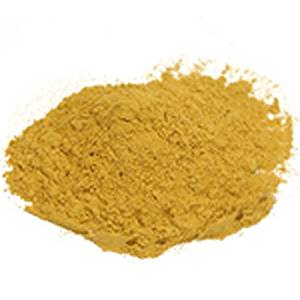What You Need to Know About Dr. Sebi's Rhubarb Root Powder
WRITTEN BY DR. SAJID SHAIKH, MAY, 2019
THIS ARTICLE IS COPYWRITTEN FOR MUCUSLESS-DIET.COM ONLY. ALL RIGHTS RESERVED
THIS ARTICLE IS COPYWRITTEN FOR MUCUSLESS-DIET.COM ONLY. ALL RIGHTS RESERVED
Welcome Friends: Remember we use Turkish Rhubarb in combination with Cascara Sagrada and Prodijiosa for the chelation protocol. You can find the herbs in my store. Read more on Cascara Sagrada here.
|
INTRODUCTION
Turkey Rhubarb is a flowering plant, which is known in the scientific community by the botanical name of Rheum palmatum. The name “rhubarb” is taken from Greek words, rha and barbarum. It is commonly found in Turkey, western China, Iran, India, and Magnolia. Turkish rhubarb is one of the most widely used herbs in Chinese medicine. It grows very quickly; hence, it is also used as an ornamental. Alternative names are Chinese rhubarb and ornamental rhubarb. Rhubarb has a fleshy stem, seven-lobed hand-shaped leaves, and tuberous and richly branched roots. Rhubarb stems are cooked and used for food and as a flavoring agent, while its leaves contain a high amount of oxalic acid and can be fatal. |
The rhubarb roots are used as a medicine, especially for the relief of constipation among other uses, and is available in different preparations, such as dried powder, tinctures, infusions, and fluid extract.
HISTORY
Since ancient times, rhubarb has been widely used as a traditional Chinese herbal medicine. In fact, it is one of the most commonly used Chinese medicine. Its first use dates back to 2700 BC. Records show that many Chinese emperors and generals used it during different times for multiple purposes.
In the Liang dynasty (557-579) and the Tang dynasty (618-907), it was used for the treatment for fever and dysentery. In the Song dynasty (960-1127), it was used to combat the plague.
Avicenna (980–1037) has also written about rhubarb in his famous book, Canon of Medicine. He describes rhubarb as a refrigerant and an antipyretic agent, which is also beneficial in bilious and bloody diarrhea.
Since ancient times, rhubarb has been widely used as a traditional Chinese herbal medicine. In fact, it is one of the most commonly used Chinese medicine. Its first use dates back to 2700 BC. Records show that many Chinese emperors and generals used it during different times for multiple purposes.
In the Liang dynasty (557-579) and the Tang dynasty (618-907), it was used for the treatment for fever and dysentery. In the Song dynasty (960-1127), it was used to combat the plague.
Avicenna (980–1037) has also written about rhubarb in his famous book, Canon of Medicine. He describes rhubarb as a refrigerant and an antipyretic agent, which is also beneficial in bilious and bloody diarrhea.
HEALTH BENEFITS AND USES FOR TURKISH RHUBARB POWDER
Constipation:
Turkish rhubarb powder is a mild laxative and improves constipation. It has astringent, cleansing, positive and balancing effects upon the digestive system. It stimulates intestinal motility (peristalsis) and stimulates excretion of mucus in the large intestine. Short-Term Use of rhubarb powder will result in significant positive effects within your digestive system.
Kidney disease:
Turkish rhubarb powder improves kidney function in people with kidney failure. It also helps in reducing the inflammation and protein loss from kidneys in conditions such as glomerulonephritis and nephrotic syndrome.
Nonalcoholic fatty liver disease:
Liver stores typically fats and carbohydrates. Excessive accumulation of these products can cause the liver to enlarge and malfunction. Turkish rhubarb powder clears your liver from the excess accumulation of fat and carbohydrates by stimulating certain liver enzymes. This also helps in reducing total body cholesterol and in the prevention of non-communicable diseases, such as myocardial infarction, stroke, diabetes mellitus, hypertension, and peripheral artery disease.
Rich source of Anti-oxidants, Vitamins, and Minerals
Rhubarb is rich in anti-oxidants. It kills excessive radicles formed in our body and helps in preventing aging, cancers, and promotes fresh-looking skin.
It also contains different vitamins (such as A, B, C, and E) and several minerals and trace elements (such as calcium, phosphorus, iron, potassium, sodium, magnesium, zinc, copper and selenium), which are very important in normal functioning of all the systems of our body.
Rhubarb has also been used for the treatment of different cancers. However, no clinical data is available to confirm its efficacy.
Other Uses:
The other traditional uses of rhubarb are:
Disclaimer: The uses mentioned above of Turkish rhubarb are based on its traditional uses. You may also find other uses. Valid clinical data is not available for their use. Safety and efficacy in humans have also not been proven. You should always talk to your healthcare provider before taking rhubarb.
SIDE EFFECTS
Turkish rhubarb is generally considered safe, like other herbal medicines. Most of the side effects are mild and temporary. Gastrointestinal problems are the most common side effects of Turkish rhubarb. These include:
Allergic reactions come in second place. These reactions may occur with any medicine or herbal use if your body is allergic to it. These effects usually include mild itching, sneezing or skin rash. Life-threatening anaphylactic reactions are very rare and seldom seen.
Other Less Common Side Effects:
Toxic Side Effects
CONTRAINDICATIONS
The use of rhubarb is contraindicated in individuals with a known allergy or hypersensitivity to rhubarb.
Although medical research is lacking regarding the possible contraindications, still it is generally suggested that use of rhubarb should be better avoided in people suffering from any of the following health conditions:
INTERACTIONS
Although Turkish rhubarb is generally a safe herbal medicine. It should be used in caution with certain medications.
Constipation:
Turkish rhubarb powder is a mild laxative and improves constipation. It has astringent, cleansing, positive and balancing effects upon the digestive system. It stimulates intestinal motility (peristalsis) and stimulates excretion of mucus in the large intestine. Short-Term Use of rhubarb powder will result in significant positive effects within your digestive system.
Kidney disease:
Turkish rhubarb powder improves kidney function in people with kidney failure. It also helps in reducing the inflammation and protein loss from kidneys in conditions such as glomerulonephritis and nephrotic syndrome.
Nonalcoholic fatty liver disease:
Liver stores typically fats and carbohydrates. Excessive accumulation of these products can cause the liver to enlarge and malfunction. Turkish rhubarb powder clears your liver from the excess accumulation of fat and carbohydrates by stimulating certain liver enzymes. This also helps in reducing total body cholesterol and in the prevention of non-communicable diseases, such as myocardial infarction, stroke, diabetes mellitus, hypertension, and peripheral artery disease.
Rich source of Anti-oxidants, Vitamins, and Minerals
Rhubarb is rich in anti-oxidants. It kills excessive radicles formed in our body and helps in preventing aging, cancers, and promotes fresh-looking skin.
It also contains different vitamins (such as A, B, C, and E) and several minerals and trace elements (such as calcium, phosphorus, iron, potassium, sodium, magnesium, zinc, copper and selenium), which are very important in normal functioning of all the systems of our body.
Rhubarb has also been used for the treatment of different cancers. However, no clinical data is available to confirm its efficacy.
Other Uses:
The other traditional uses of rhubarb are:
- Antibacterial and antiviral effects
- Stomach ulcers
- Gastrointestinal bleeding
- Pancreatitis
- High-cholesterol
- Obesity
- Liver and gall bladder disorders (hepatitis, cholecystitis)
Disclaimer: The uses mentioned above of Turkish rhubarb are based on its traditional uses. You may also find other uses. Valid clinical data is not available for their use. Safety and efficacy in humans have also not been proven. You should always talk to your healthcare provider before taking rhubarb.
SIDE EFFECTS
Turkish rhubarb is generally considered safe, like other herbal medicines. Most of the side effects are mild and temporary. Gastrointestinal problems are the most common side effects of Turkish rhubarb. These include:
- Nausea and vomiting
- Heartburn
- Abdominal cramps
Allergic reactions come in second place. These reactions may occur with any medicine or herbal use if your body is allergic to it. These effects usually include mild itching, sneezing or skin rash. Life-threatening anaphylactic reactions are very rare and seldom seen.
Other Less Common Side Effects:
- Dehydration
- Decreased blood pressure (Hypotension)
- Electrolyte imbalance
- Bone problems
- Confusion
- Seizures
Toxic Side Effects
- Only the roots of Turkish rhubarb are used as medicine. The leaves contain a high amount of oxalic acid, which can be lethal if consumed in high doses. Excess oxalic acid can result in kidney stones and metabolic problems. Hence, excessive doses should be avoided.
- Cardiac toxicity with irregular heart rhythm and palpitations
CONTRAINDICATIONS
The use of rhubarb is contraindicated in individuals with a known allergy or hypersensitivity to rhubarb.
Although medical research is lacking regarding the possible contraindications, still it is generally suggested that use of rhubarb should be better avoided in people suffering from any of the following health conditions:
- Inflammatory bowel disease (Ulcerative colitis and Crohn's disease)
- Recent Abdominal surgery
- Celiac disease
- Appendicitis
- Diverticulitis
- History of Kidney stones
INTERACTIONS
Although Turkish rhubarb is generally a safe herbal medicine. It should be used in caution with certain medications.
- Rhubarb may affect serum electrolyte levels. The altered serum electrolyte levels may cause interactions with other drugs. For example cardiac glycosides, which includes digoxin (lanoxin) and digitoxin. These drugs are used in the management of heart failure. The toxicity of cardiac glycosides increases with potassium disturbances.
- Rhubarb ma decreases the absorption of many oral drugs resulting in their suboptimal blood levels.
- Use of rhubarb should be avoided with other potentially nephrotoxic drugs (that may damage kidneys). These drugs include cyclosporine, aminoglycosides (amikacin, gentamicin), and nonsteroidal anti-inflammatory drugs (naproxen, diclofenac, ibuprofen).
- Do not use other laxative agents with rhubarb as they will have a synergistic effect and may result in severe diarrhea, abdominal cramps, severe dehydration and low blood pressure (hypotension).
- Use diuretic agents (water-pills) with caution if you are also using rhubarb. It can result in severe electrolyte imbalances.

ACTIVE COMPOUNDS & MECHANISM OF ACTION
Rhubarb contains different chemicals, but sennosides A-F and other related dianthrone derivatives are considered to be its active ingredients. In the gut, the microflora further converts them into rhein anthrone, which produces the purgative activity by increasing the intestinal motility (peristalsis) and mucous secretion within the intestine causing the bowel to move. It also has some antibacterial effect.
In most cases, the rhubarb extracts are effective and will help in bowel movements within 6-8 hours.
DOSING
The safe and effective dose of Turkish rhubarb is not proven by the studies; therefore, the smallest dose should be consumed to relieve constipation. Unlike pharmaceutical drugs, dietary and herbal supplements do not undergo rigorous testing in the United States. Hence, the quality and the quantity of the supplement varies considerably. It is available in different preparations, such as dried powder, tinctures, infusions, and fluid extract.
Rhubarb contains different chemicals, but sennosides A-F and other related dianthrone derivatives are considered to be its active ingredients. In the gut, the microflora further converts them into rhein anthrone, which produces the purgative activity by increasing the intestinal motility (peristalsis) and mucous secretion within the intestine causing the bowel to move. It also has some antibacterial effect.
In most cases, the rhubarb extracts are effective and will help in bowel movements within 6-8 hours.
DOSING
The safe and effective dose of Turkish rhubarb is not proven by the studies; therefore, the smallest dose should be consumed to relieve constipation. Unlike pharmaceutical drugs, dietary and herbal supplements do not undergo rigorous testing in the United States. Hence, the quality and the quantity of the supplement varies considerably. It is available in different preparations, such as dried powder, tinctures, infusions, and fluid extract.
- Adults
- Children (younger than 18 years)
- Pregnancy
- Lactation
SPONSORED
BEST BOTANICALS RHUBARB
|
Disclaimer: The interactions of Turkish rhubarb with other pharmaceutical agents are not fully studied. It may adversely affect your health by either decreasing the efficacy of other drugs or potentiating the adverse effects. You should always talk to your healthcare provider before taking rhubarb.
REFERENCES:
REFERENCES:
- Cirillo C, Capasso R. Constipation and botanical medicines: an overview. Phytotherapy Research. 2015 Oct;29(10):1488-93.
- Foust CM. Rhubarb: The wondrous drug. Princeton University Press; 2014 Jul 14.
- Shimizu K, Kageyama M, Ogura H, Yamada T, Shimazu T. Effects of Rhubarb on intestinal dysmotility in critically ill patients. Internal Medicine. 2018 Feb 15;57(4):507-10.
- Hu J, Li P, Zhang T. Rhubarb combined with trypsin inhibitor for severe acute pancreatitis: A systematic review and meta‐analysis. Phytotherapy research. 2018 Aug;32(8):1450-8.
- Jong-Chol C, Tsukasa M, Kazuo A, Hiroaki K, Haruki Y, Yasuo O. Anti-Bacteroides fragilis substance from rhubarb. Journal of ethnopharmacology. 1987 May 1;19(3):279-83.
- Matsuda H, Morikawa T, Toguchida I, Park JY, Harima S, Yoshikawa M. Antioxidant constituents from rhubarb: structural requirements of stilbenes for the activity and structures of two new anthraquinone glucosides. Bioorganic & medicinal chemistry. 2001 Jan 1;9(1):41-50.
- Kadake K, Fukumoto K, Chikayasu I, Kawai K, Ida K. Clinical effect of rhubarb and glycyrrhiza extract tablets on constipation. Nihon rinsho. Japanese journal of clinical medicine. 1973 Oct;31(10):3069.







